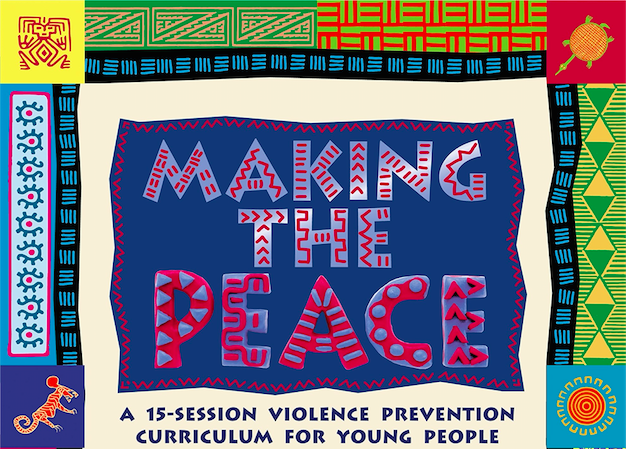Making the Peace: A 15-Session Violence Prevention Curriculum for Young People

Making the Peace is a violence prevention program for helping high school students build safer schools, relationships, and communities. The 15 session curriculum addresses the social roots of violence and injustice, and has exercises on building safe and inclusive communities.
This material was designed to be a companion manual for "Days of Respect" but it can also stand alone for highs school students. It can both be used in schools, after school programs, correctional facilities and any youth serving organization.
15-sessions are grouped into three units. Part One explains basic concepts and establishes a framework of safety and respect within the class. Part Two looks at the forms which violence takes. Part Three focuses on healing from the past and introduces individual and group activities that can help to make the peace. The opening chapter, "Before You Begin," offers specific advice and guidelines to teachers and facilitators for doing violence prevention work with young people. Materials include practical suggestions—from arranging desks to facilitate discussion, to anticipating challenging issues and topics and handling difficult responses.

